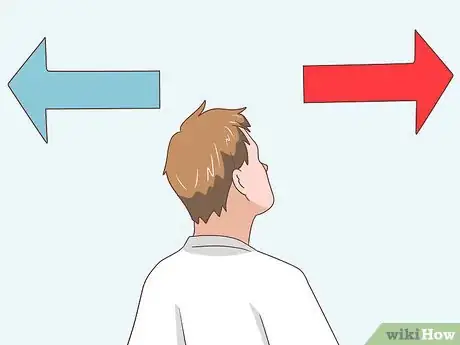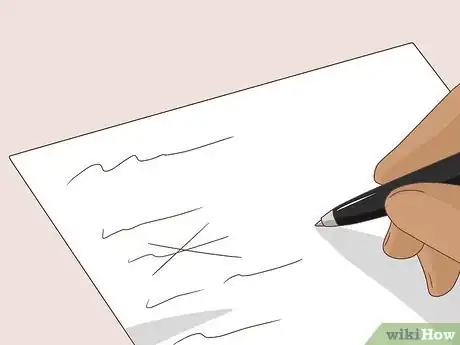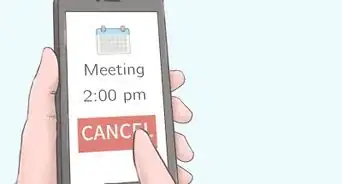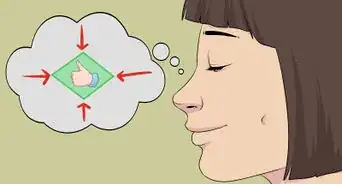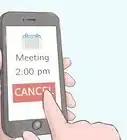This article was co-authored by Erin Conlon, PCC, JD. Erin Conlon is an Executive Life Coach, the Founder of Erin Conlon Coaching, and the host of the podcast "This is Not Advice." She specializes in aiding leaders and executives to thrive in their career and personal lives. In addition to her private coaching practice, she teaches and trains coaches and develops and revises training materials to be more diverse, equitable, and inclusive. She holds a BA in Communications and History and a JD from The University of Michigan. Erin is a Professional Certified Coach with The International Coaching Federation.
There are 7 references cited in this article, which can be found at the bottom of the page.
This article has been viewed 48,148 times.
Many times in life, we are forced to choose between two or more options. It's not easy to make a decision, because everything you choose imprints on your life. It's easy to be overwhelmed in the moment and make a choice you regret. This article will guide you to approach problem solving so that you can make wise choices.
Steps
Expert Q&A
-
QuestionWhy do I get overwhelmed making decisions?
 Erin Conlon, PCC, JDErin Conlon is an Executive Life Coach, the Founder of Erin Conlon Coaching, and the host of the podcast "This is Not Advice." She specializes in aiding leaders and executives to thrive in their career and personal lives. In addition to her private coaching practice, she teaches and trains coaches and develops and revises training materials to be more diverse, equitable, and inclusive. She holds a BA in Communications and History and a JD from The University of Michigan. Erin is a Professional Certified Coach with The International Coaching Federation.
Erin Conlon, PCC, JDErin Conlon is an Executive Life Coach, the Founder of Erin Conlon Coaching, and the host of the podcast "This is Not Advice." She specializes in aiding leaders and executives to thrive in their career and personal lives. In addition to her private coaching practice, she teaches and trains coaches and develops and revises training materials to be more diverse, equitable, and inclusive. She holds a BA in Communications and History and a JD from The University of Michigan. Erin is a Professional Certified Coach with The International Coaching Federation.
Executive Life Coach It's possible that you're trying to find the right answer and looking for the exact perfect thing that will cause you the least amount of trouble. That will surely make you waste a lot of time. What you choose today may not be perfect for today but that doesn't mean it can't be fixed tomorrow or that there isn't something good that will come of it later.
It's possible that you're trying to find the right answer and looking for the exact perfect thing that will cause you the least amount of trouble. That will surely make you waste a lot of time. What you choose today may not be perfect for today but that doesn't mean it can't be fixed tomorrow or that there isn't something good that will come of it later.
References
- ↑ https://www.psychologytoday.com/us/blog/the-athletes-way/201603/how-does-anxiety-short-circuit-the-decision-making-process
- ↑ Erin Conlon, PCC, JD. Executive Life Coach. Expert Interview. 31 August 2021.
- ↑ https://www.fastcompany.com/90199653/5-ways-to-make-tough-decisions-faster-and-not-regret-them-later
- ↑ Erin Conlon, PCC, JD. Executive Life Coach. Expert Interview. 31 August 2021.
- ↑ https://www.corporatewellnessmagazine.com/article/5-steps-to-good-decision-making
- ↑ Erin Conlon, PCC, JD. Executive Life Coach. Expert Interview. 31 August 2021.
- ↑ https://www.theguardian.com/lifeandstyle/2018/oct/19/this-column-will-change-your-life-oliver-burkeman
- ↑ https://hbr.org/2019/08/6-reasons-we-make-bad-decisions-and-what-to-do-about-them
- http://www.oprah.com/spirit/How-to-Make-the-Right-Decision-How-to-Decide/2
